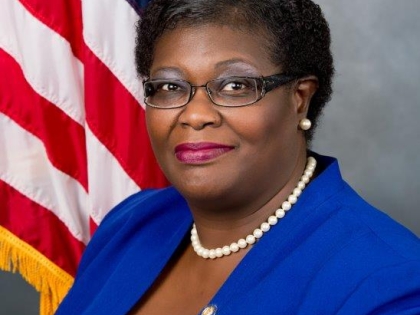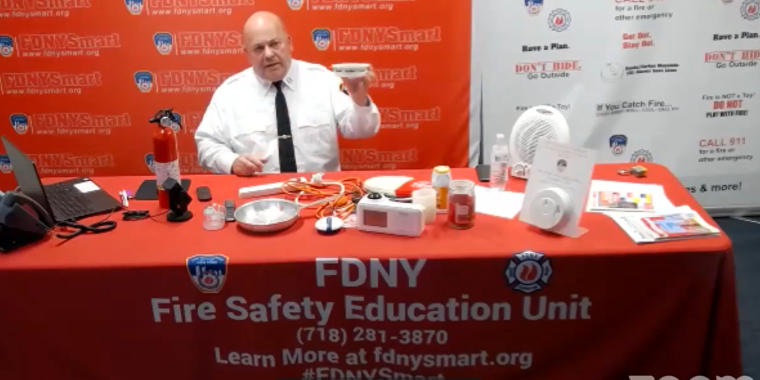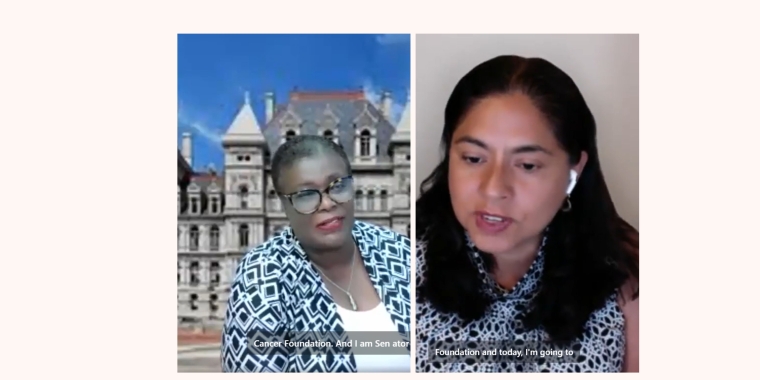
Senator Roxanne J. Persaud’s Update on Enacted Fiscal Year (FY) 2020-2021 NYS Budget
April 7, 2020
Senator Roxanne J. Persaud’s Update on Enacted Fiscal Year (FY) 2020-2021 NYS Budget
Dear Friend,
The Senate, Assembly and the Governor recently agreed upon a $177 billion budget for fiscal year 2020-2021, which began on Wednesday, April 1, 2020. When the Legislature reconvened in early January, we were faced with a number of difficult proposals to address what was at least a $4 billion deficit. There was little (if any) indication that within a matter of weeks, tens of thousands of New Yorkers would become ill with COVID-19, school-aged young people would be isolating at home and hundreds of thousands of New Yorkers would not be working, either due to having to care for their loved ones or being laid off from their job. These are very uncertain times and New Yorkers are struggling.
The final budget language reflects numerous tremendously difficult decisions in light of New York State’s growing budget deficit and the rapidly growing challenges of fighting the COVID-19 pandemic. While I am not pleased with a number of final agreements contained in the thousands of pages of legislation, I am confident that my colleagues and I fought our hardest to deliver a balanced budget that mitigates some of the toughest possible outcomes.
In my continuing effort to keep you informed, I suggest that you "Sign Up For Coronavirus Updates" to get email updates on the evolving COVID-19 situation from New York State. As a community, it is important that we continue to combat the widespread panic and hysteria that is fueled by racism and xenophobia. Misinformation and racism are more dangerous than any virus. If you are being harassed due to your race, nation of origin or other identities, you can report discrimination or harassment to the NYC Commission on Human Rights by calling 311 and saying “human rights.”
Let us work together to stop the spread of COVID-19 in SD-19! #STAYHOME.
Sincerely,
Senator Roxanne J. Persaud
SD19
HIGHLIGHTS OF THE ENACTED FY 2020-2021 NEW YORK STATE BUDGET
COVID 19 Preparedness & Response
On March 2nd, New York State led the nation by adopting early emergency response measures and allocating $40 million to address the COVID-19 pandemic, which has now impacted every county in our state. Effective March 3rd, New Yorkers becoming ill from COVID-19 (or required to isolate) are guaranteed at least 5 to 7 days of paid sick leave. Throughout the month of March, the Senate and Assembly worked with the Governor to bolster other programs that will assist during the fallout:
$1.05 billion increase to funding for Unemployment Insurance Benefits (UIB)
The required one-week waiting period to start receiving UIB has been lifted
$206.2 million for Workers Compensation Benefits (including $9.8 million in additional funding due to the projected increase in claims)
$200 million in additional support for Child Care Development Block Grant (CCDBG) to assist families affected by the pandemic
Investing in K-12 Education
While the enacted FY 2020-2021 budget reduces spending in nearly all other areas, funding levels for K-12 have been maintained. The budget:
holds NYS Foundation Aid harmless from reductions and any other school aid reductions were replaced with federal Coronavirus Aid, Relief, and Economic Security Act or “CARES Act” funding
provides a $104 million increase in School Aid for a total of $27.9 billion
provides a $96 million increase for expense-based aid for a total funding level of $8.99 billion
provides $10 million in new funding for student mental health support grants and $1 million for civics curriculum development
provides $7.8 million for Adult Literacy Education (including a $1.5 million Legislative restoration)
maintains more than $230 million in past years’ competitive grants to school districts for programs such as early college high schools, after-school programming, and advanced courses
Investing in Higher Education
Education empowers communities, especially during times of crisis. I am happy to report that the enacted budget funds the State University of New York (SUNY) and City University of New York (CUNY) without the need for student tuition increases. The budget also provides funding for critically important programs:
$35.5 million for the Higher Education Opportunity Program (HEOP)
$6 million for the Foster Youth Success Program. We fought to ensure these program participants have access to additional health and human services throughout the COVID-19 pandemic.
$250,000 for the CUNY Pipeline Center
Because it is tremendously difficult to attend college as a parent, we made sure the budget included an additional:
$900,000 for CUNY child care ($1.7 million total)
$549,000 for SUNY child care ($2.1 million total)
Caring for our Seniors
The enacted budget provides critical funding for senior programs including:
$28,281,000 for home-delivered meals though the Wellness in Nutrition (WIN) program
$4 million for Naturally Occurring Retirement Communities (NORC)
$4 million for Neighborhood Naturally Occurring Retirement Communities (NNORC)
$2.4 million for the Settlement House initiative
$450,000 for the Holocaust Survivor Initiative
Protecting Critical Health Funding & Programs
As of late December 2019, New York was facing a $4 billion deficit within the state’s Medicaid program. In January of this year, the Governor convened a Medicaid Redesign Taskforce (referred to as MRT II) to identify savings and efficiencies and to provide recommendations. In the midst of MRT II deliberations, COVID-19 emerged as a national threat, putting a tremendous strain on New York’s health care system. As a result of receiving increased Medicaid funding from the federal The Families First Coronavirus Response Act, New York State will temporarily defer Medicaid savings which included spending reductions to hospitals; cost-shifts to counties and local governments; and numerous 1.5% across-the-board programmatic cuts. Some other key provisions in the health budget include:
group health plan out-of-pocket costs for insulin will be capped at $100 per month
expanded access to physical and mental telehealth services for Medicaid enrollees
$102 million legislative restoration to mitigate the proposed $399 million in Medicaid cuts to hospitals, plus an additional $200 million legislative restoration to other Medicaid programs
establishment of a Prescription Drug Pricing and Accountability Board to make sure that New Yorkers aren’t overcharged for vital medication
continued funding of Community Health Advocates program to ensure consumers’ access to assistance with health system navigation and medical billing concerns
Lifting Up Our Most Vulnerable
As a member of the NYS Senate’s Human Services Budget Working Group, I worked with my colleagues to advocate for programs that serve vulnerable youth, individuals and families living in poverty, veterans, people with disabilities and those experiencing homelessness or housing instability.
Youth
$2 million in continued funding for the Substance Abuse Prevention & Intervention Specialists (SAPIS) program in NYC schools
$2 million additional for Child Advocacy Centers
$1.5 million for Safe Harbour services for sexually exploited youth
$1 million for the Fresh Air Fund
$100,000 for the NYPD Youth Explorers Program
Temporary & Safety Net Assistance
language in the budget eliminates the requirement for photo identification for current public assistance recipients and provides for a DMV-issued identification card at no cost
While we were successful in stopping Medicaid cost-shifts to the City of New York in the near future, state reimbursements for Temporary Aid to Needy Families (TANF) and Emergency Assistance for Families (EAF) will be reduced to 85%.
Supportive & Homeless Housing
$128 million for the Homeless Housing Assistance Program (HHAP), up from $64 million in FY 2019-2020
$42.6 million for the Homeless Housing Prevention Services Program, a $2.8 million increase over FY 2019-2020
$63 million for MRT (I) Supportive Housing
Additional Social Services Restorations
$1.5 million for the Disability Advocacy Program (for a total of $4.13 million state share)
$90,000 for the Met Council on Jewish Poverty
$800,000 for Welfare-to-Careers programs
$1.2 million for the United Way 211 system
New Americans: the enacted budget continues our commitment to New Americans with $10 million for the Liberty Defense Fund.
Veterans: $2.5 million for the Joseph P. Dwyer Peer-to-Peer Services Program, $250,000 of which is for New York City.
Workforce: we will continue the fight for a Human Services Cost of Living Adjustment (COLA) of 3% (immediate or phased-in).
Empowering New Yorkers To Stay In Their Homes
The enacted budget invests $10 million in the Homeowner Protection Program (HOPP) which helps New Yorkers avert foreclosure. Previously, this program was funded through bank settlement proceeds which were exhausted in early 2019, requiring decisive action by the Legislature.
Additionally, funding was provided for many community-based housing organizations including Neighborhood Housing Services (NHS) of Brooklyn.
Justice Reforms
New York continues to lead the nation in enacting long-overdue criminal justice reforms. We have built on the landmark progress made in 2019 by improving policies that will make the system fairer and equally applied in every corner of New York State. Such changes include:
Fairness in the Child Welfare System. The Legislature successfully advocated for tightening the evidentiary standard from “some credible evidence” to a “fair preponderance of evidence” when investigating allegations of child abuse and maltreatment transmitted to the Statewide Central Register (SCR) for Child Abuse and Maltreatment. Too many parents, particularly parents of color, have been harmed by this policy.
Reporting of Domestic Violence Crimes. In order to ensure that domestic violence-related convictions are properly identified on criminal background checks, this new law requires court clerks to submit conviction records to the Division of Criminal Justice Services (DCJS) within three business days. This was previously optional. The new law will ensure that domestic violence convictions are eventually reported to the FBI for inclusion in the National Instant Criminal Background Check System (NICS). These adopted changes are nearly identical to my bill S7792.
Amendments to Bail Reform. The Senate Democratic Conference took a hard look at concerns that were raised after the 2019 bail laws went into effect in January of this year. After significant discussion, language was included in the enacted budget to (1) expand the list of bail eligible qualifying offenses, (2) create a mechanism for repeat offenders to be assigned bail, (3) expand reporting requirements, (4) provide for a comprehensive review of the efficacy of the new law and (5) provide tools to respond to racial bias in the criminal justice system. These changes address many of the substantive concerns with the new bail laws, while preserving the intent of and improvements resulting from the 2019 legislation.
Changes to Discovery Laws. The Senate heard some of the concerns made regarding the implementation of the 2019 Discovery changes, and took action. Language in the budget extends the initial discovery response deadline and provides clarification in the law to ease the burden related to discovery responses, protections for victims and witnesses, and a range of tools to enable law enforcement to respond to discovery requests while ensuring public safety.
Public Protection
While many of the priorities I advocate for that would address the scourge of gun violence did not make it into this year’s budget, we still made tremendous progress. These new policies will help prevent future gun violence, and help better protect New Yorkers. The adopted budget includes:
Domestic Incident-Related Firearm Confiscation. Police will now be allowed to seize firearms, rifles, and shotguns upon responding to a domestic violence incident. Police will be required to hold seized weapons for up to two years, and must return seized weapons after 48 hours if there is no legal impediment to doing so. Eighteen states currently have a similar policy.
Firearm Background Checks. Possession of firearms, rifles, and shotguns will be banned for carriers with out-of-state convictions that are similar to serious offenses under New York’s Penal Law. The Division of Criminal Justice Services (DCJS) will be required to publish (and update annually) a list of out-of-state crimes that match New York’s serious offenses. This part will only apply to out-of-state convictions entered after the effective date.
Other Critical Actions
Investing $3 billion in the Metropolitan Transportation Authority (MTA) 2020-24 Capital Plan
Subject to approval by the electorate, the budget includes a $3 billion ‘Restore Mother Nature Bond Act’ which provides (1) $1 billion for restoration and flood risk reduction; (2) $700 million for climate change mitigation; (3) $550 million for open space land conservation and recreation; (4) $550 million for water quality improvement and resilient infrastructure; and (5) specific provisions for projects benefiting environmental justice communities.
Banning of polystyrene food packaging and polystyrene packing peanuts beginning January 1, 2022.
To spur economic development, the Excelsior Tax Credit Program and START-UP NY have both been extended for five additional years.
Share this Article or Press Release
Newsroom
Go to Newsroom

